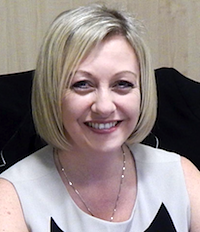 A new service to help resellers comply with changing industry regulations and prove compliance to customers has been launched by Train to Win.tv and industry body the Federation of Communication Services (FCS). The initiative is designed to help CPs check that their service delivery, marketing activity and record keeping complies with current industry regulation; and provide compliant organisations with an accreditation that forms an extension of the FCS Mark of Excellence programme.
A new service to help resellers comply with changing industry regulations and prove compliance to customers has been launched by Train to Win.tv and industry body the Federation of Communication Services (FCS). The initiative is designed to help CPs check that their service delivery, marketing activity and record keeping complies with current industry regulation; and provide compliant organisations with an accreditation that forms an extension of the FCS Mark of Excellence programme.
"The service is based on a detailed review of the CP's documentation in key areas where regulation applies," stated Train to Win.tv founder and owner Julie Mills (pictured).
"A report will be provided, highlighting areas of non-compliance together with recommendations on the action necessary to address any problem areas.
"Additional hands-on support is also available, including help with the drafting of key documents and provision of templates in some areas."
Full accreditation will be awarded to companies that provide evidence to show that all non-compliances have been satisfactorily addressed.
The scheme builds on work already carried out by Train to Win.tv and FCS during the past two years, helping CPs to fully grasp their regulatory obligations in many areas such as sales and marketing, customer contracts, billing, codes of practice and complaints handling.
"These are all areas where Ofcom has recently carried out investigations to monitor compliance against its requirements," added Mills. "In some cases substantial fines have been levied for non-compliance."
Ofcom also plans to overhaul the sector's regulation as part of its Digital Communication Review, which is contained primarily in the General Conditions of Entitlement (part of the UK Communications Act).
In response to the watchdog's regulations the new service will also deliver updates on regulatory changes, and offer two-yearly reassessments to ensure compliant CP's maintain their accreditation.
"The compliance and accreditation service is a logical development of our current training," said Mills. "Client feedback indicated the need for direct support and a structured framework to help make the necessary changes in their businesses."
FCS CEO Chris Pateman added: "FCS welcomes any initiatives which help to improve the professionalism and the public image of the industry."
HighNet is the first company to sign up for the service and gain accreditation.
"It can be difficult for companies to identify whether a telecoms supplier is reputable or not, until they encounter a problem," noted Katrina McDonald Service Delivery Director.
"This service provides our customers with the confidence that our processes and practices are fully compliant."
FCS members can discover more about the new service at the FCS CP16 event on 8th September in London.

 A group of comms sector business leaders have set up the Entrepreneur Panel, a CSR initiative established in partnership with youth-led international development charity Restless Development.
A group of comms sector business leaders have set up the Entrepreneur Panel, a CSR initiative established in partnership with youth-led international development charity Restless Development. A new service to help resellers comply with changing industry regulations and prove compliance to customers has been launched by Train to Win.tv and industry body the Federation of Communication Services (FCS). The initiative is designed to help CPs check that their service delivery, marketing activity and record keeping complies with current industry regulation; and provide compliant organisations with an accreditation that forms an extension of the FCS Mark of Excellence programme.
A new service to help resellers comply with changing industry regulations and prove compliance to customers has been launched by Train to Win.tv and industry body the Federation of Communication Services (FCS). The initiative is designed to help CPs check that their service delivery, marketing activity and record keeping complies with current industry regulation; and provide compliant organisations with an accreditation that forms an extension of the FCS Mark of Excellence programme. Henley-based service provider Fidelity Group has been selected to help an innovative upgrade of Britain's iconic red public telephone boxes gain industry traction.
Henley-based service provider Fidelity Group has been selected to help an innovative upgrade of Britain's iconic red public telephone boxes gain industry traction. Channel Telecom's eighth annual partner golf day received a big thumbs up from guests who enjoyed a welcome breakfast, 18 holes of golf followed by a gourmet BBQ with prizes for the longest drive, nearest the pin, team winners and the overall day winner. Clifford Norton, Channel Telecom MD, said: "This event isn't just an excuse to squeeze in 18 holes, it's another way to thank our partners for their ongoing commitment and contribution. We have a great team, and we see our partners as an extension of that."
Channel Telecom's eighth annual partner golf day received a big thumbs up from guests who enjoyed a welcome breakfast, 18 holes of golf followed by a gourmet BBQ with prizes for the longest drive, nearest the pin, team winners and the overall day winner. Clifford Norton, Channel Telecom MD, said: "This event isn't just an excuse to squeeze in 18 holes, it's another way to thank our partners for their ongoing commitment and contribution. We have a great team, and we see our partners as an extension of that."